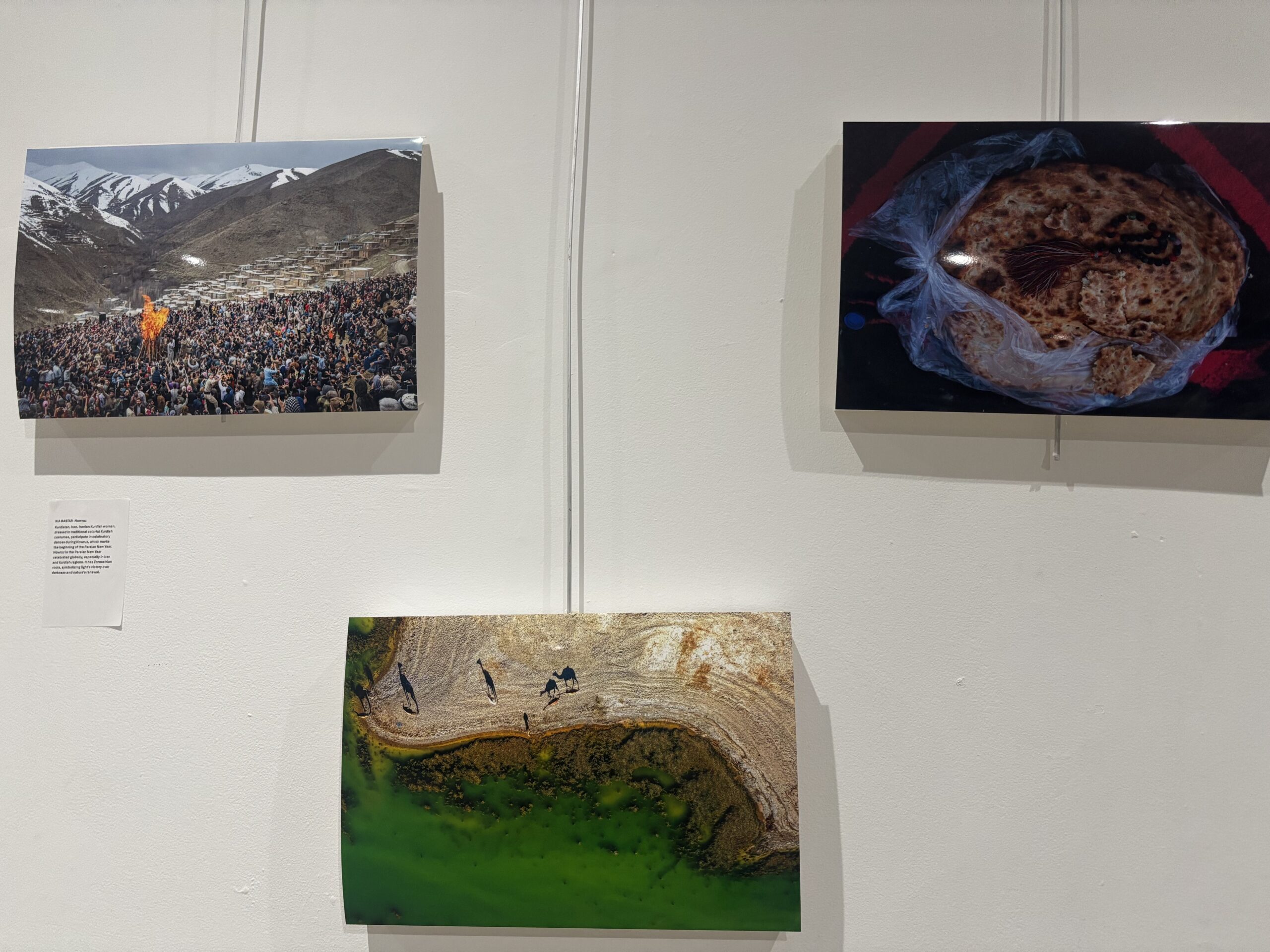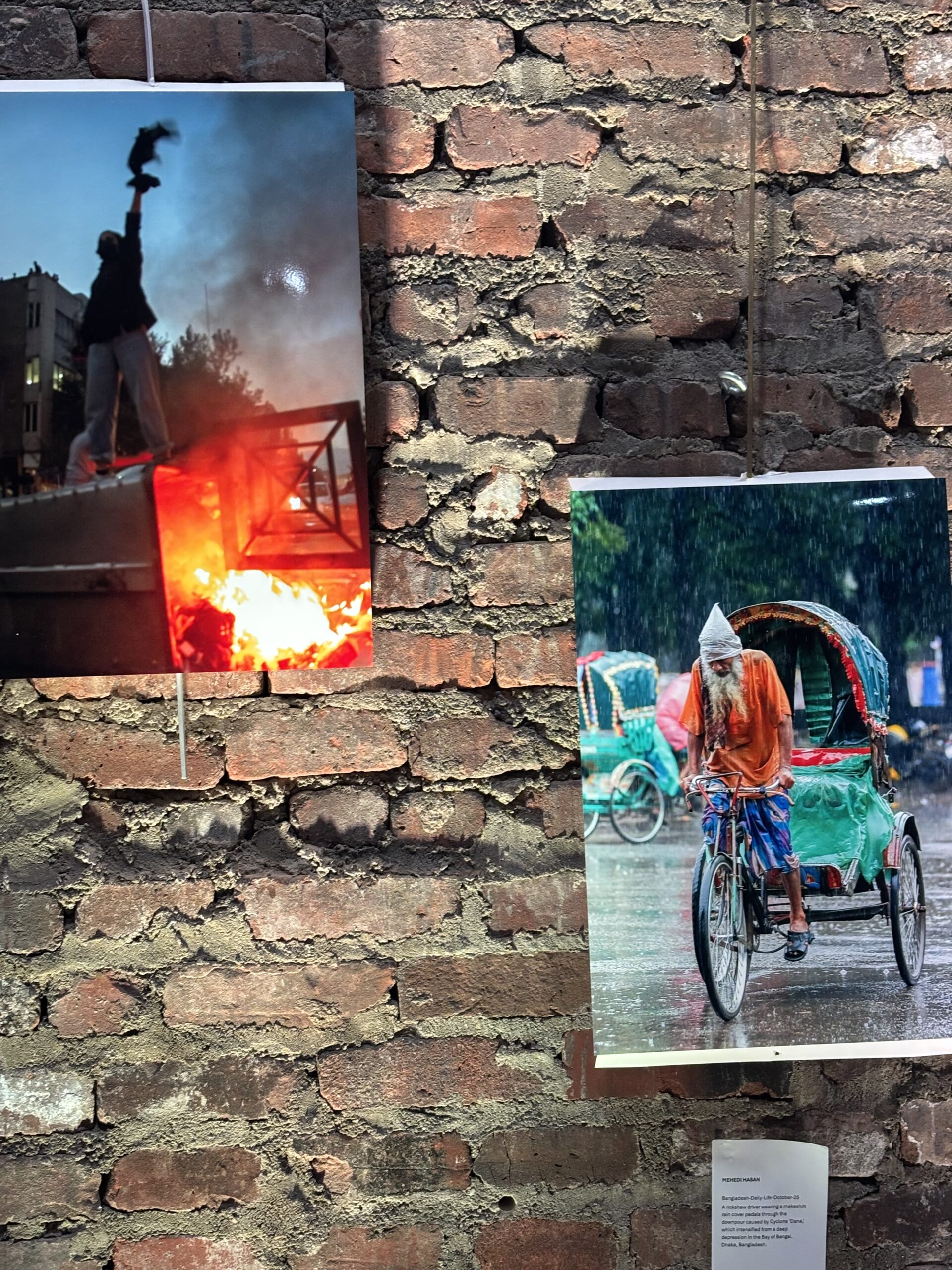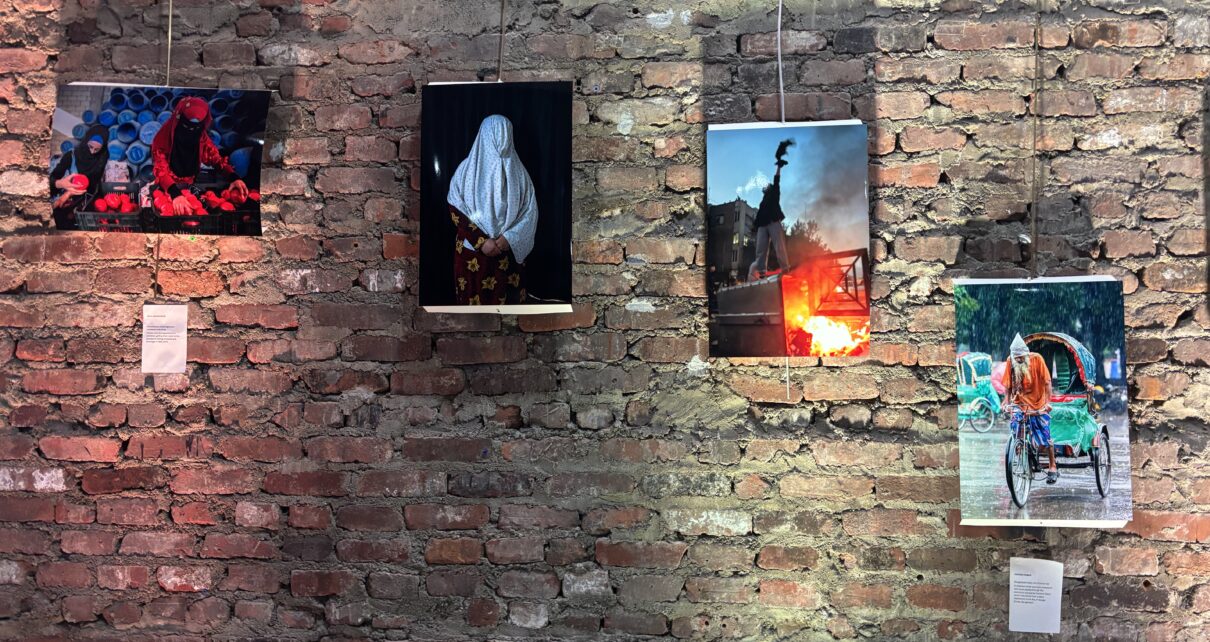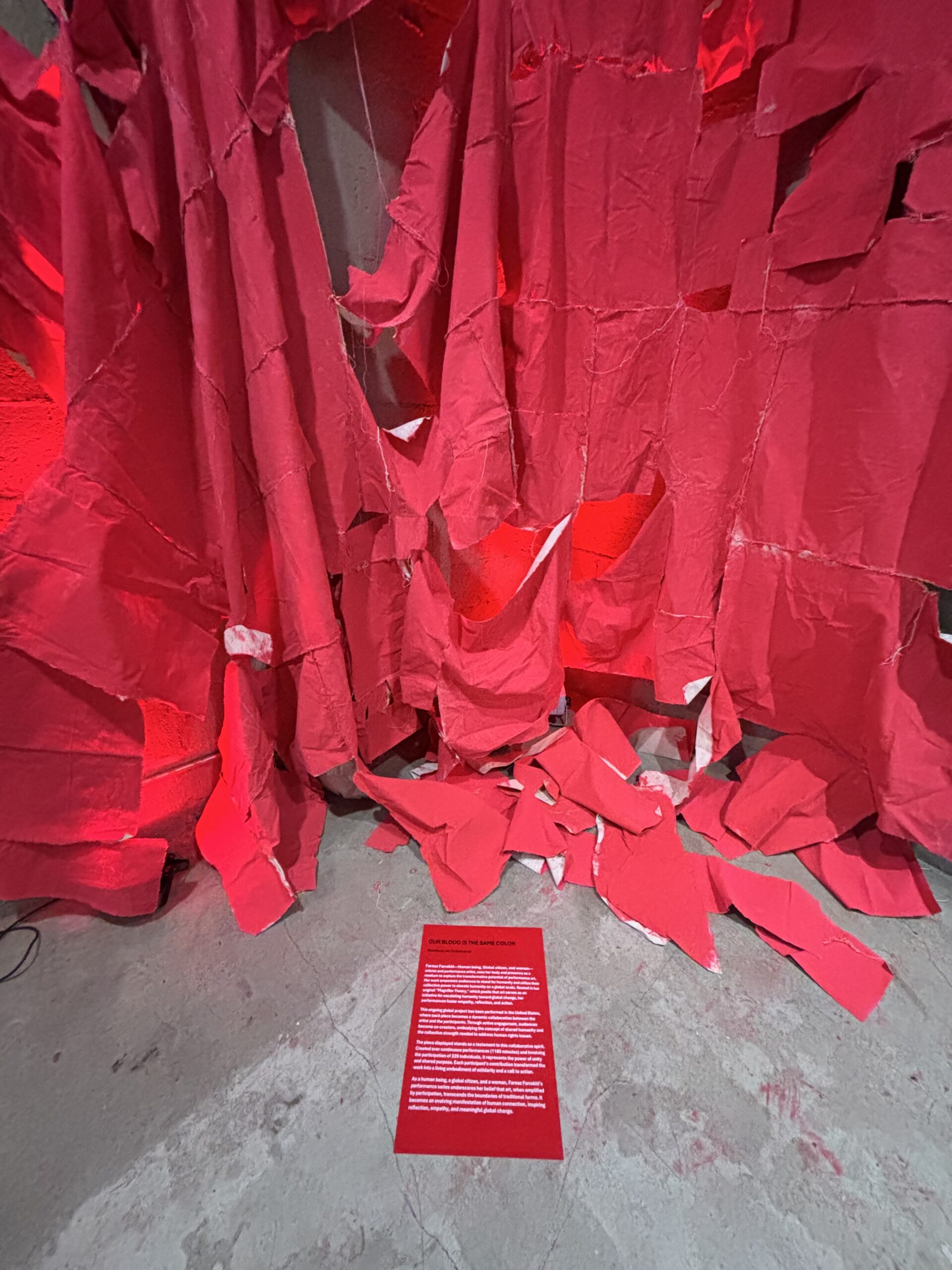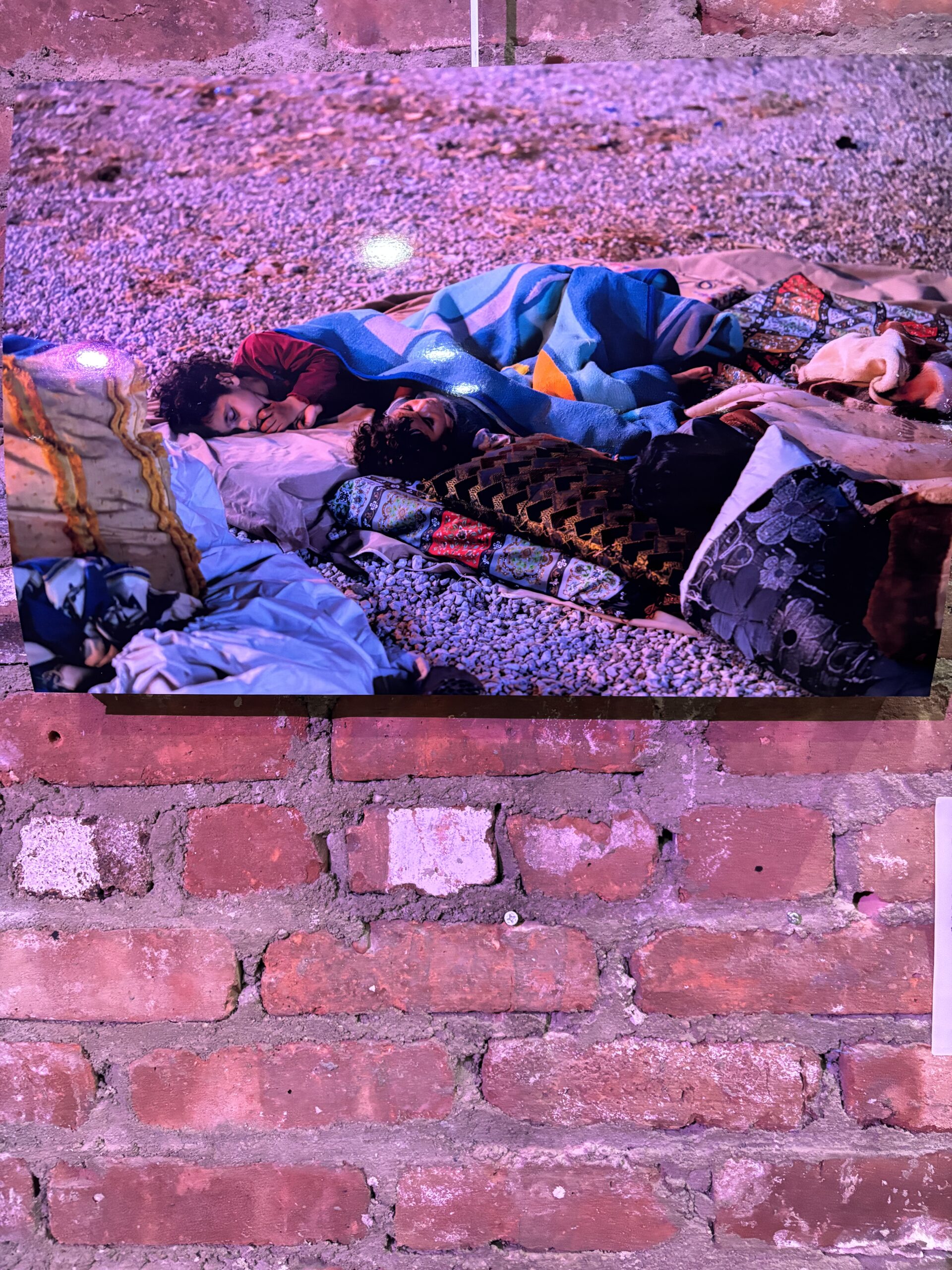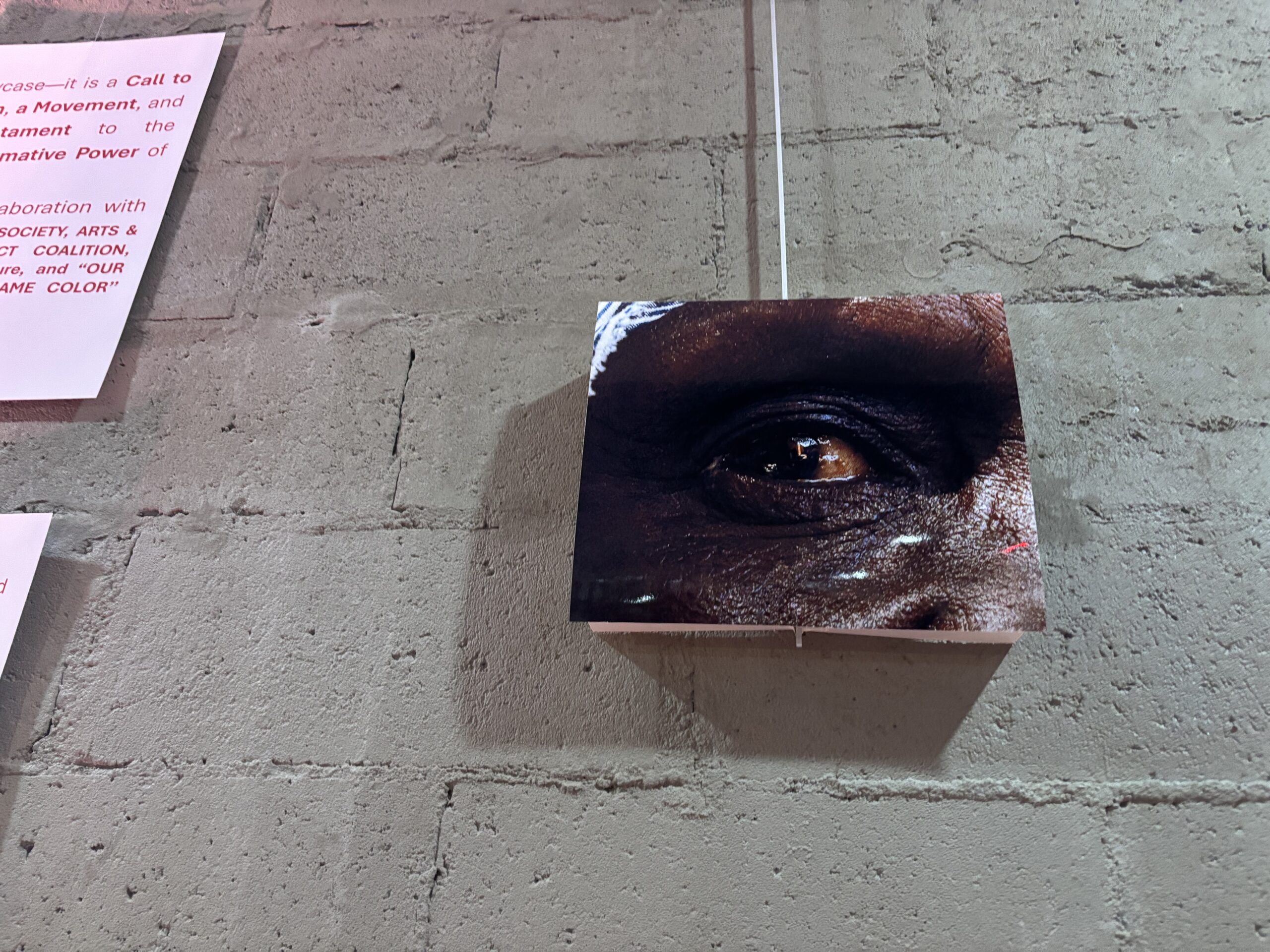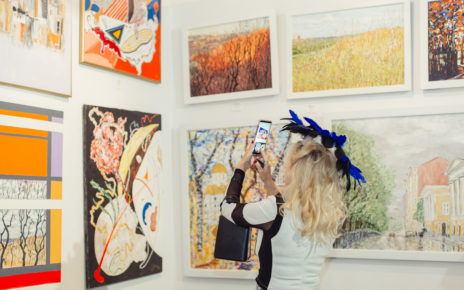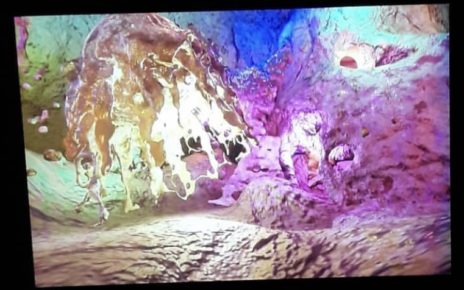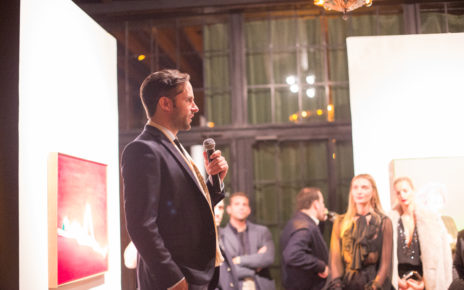“Art transforms boundaries and transforms spectators into advocates, and advocates into leaders. This initiative is deeply aligned with the UN sustainable development goals, embodying a shared vision for a just and sustainable future.”
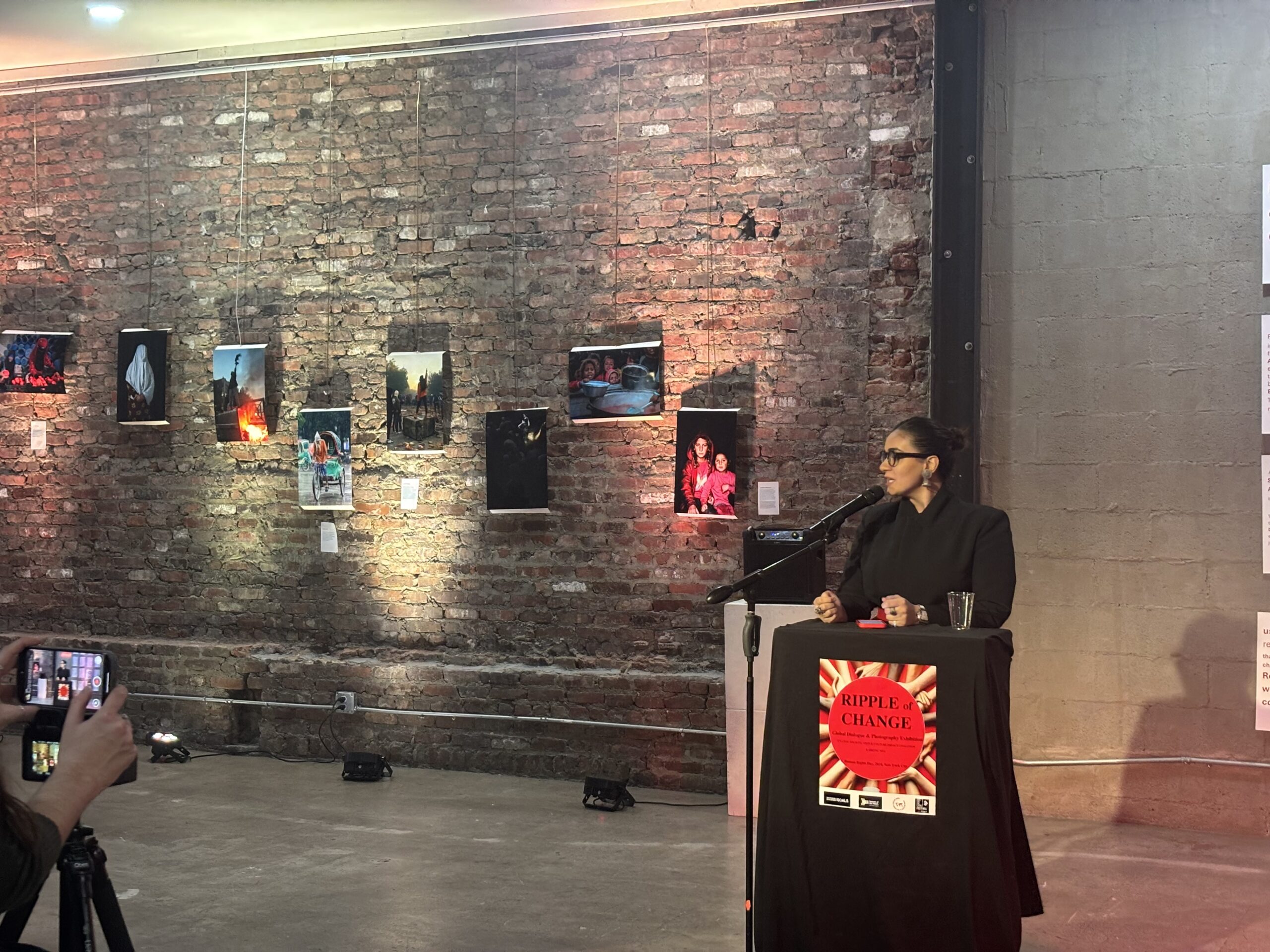
The exquisite “Ripples of Change” immersive art exhibit, appropriately hosted on Human Rights Day at Ideal Glass Studios, encapsulates all that matters right now: Freedom, Dignity, and Access to Basic Resources. In collaboration with the UN Civil Society Arts and Culture Impact Coalition and “Our Blood is the Same Color” NPO, the showcase uniquely aligns with the United Nations Sustainable Development Goals (SDGs), while underscoring the profound role of ART today in advancing humanity’s shared aspirations for a sustainable, equitable, and peaceful world.
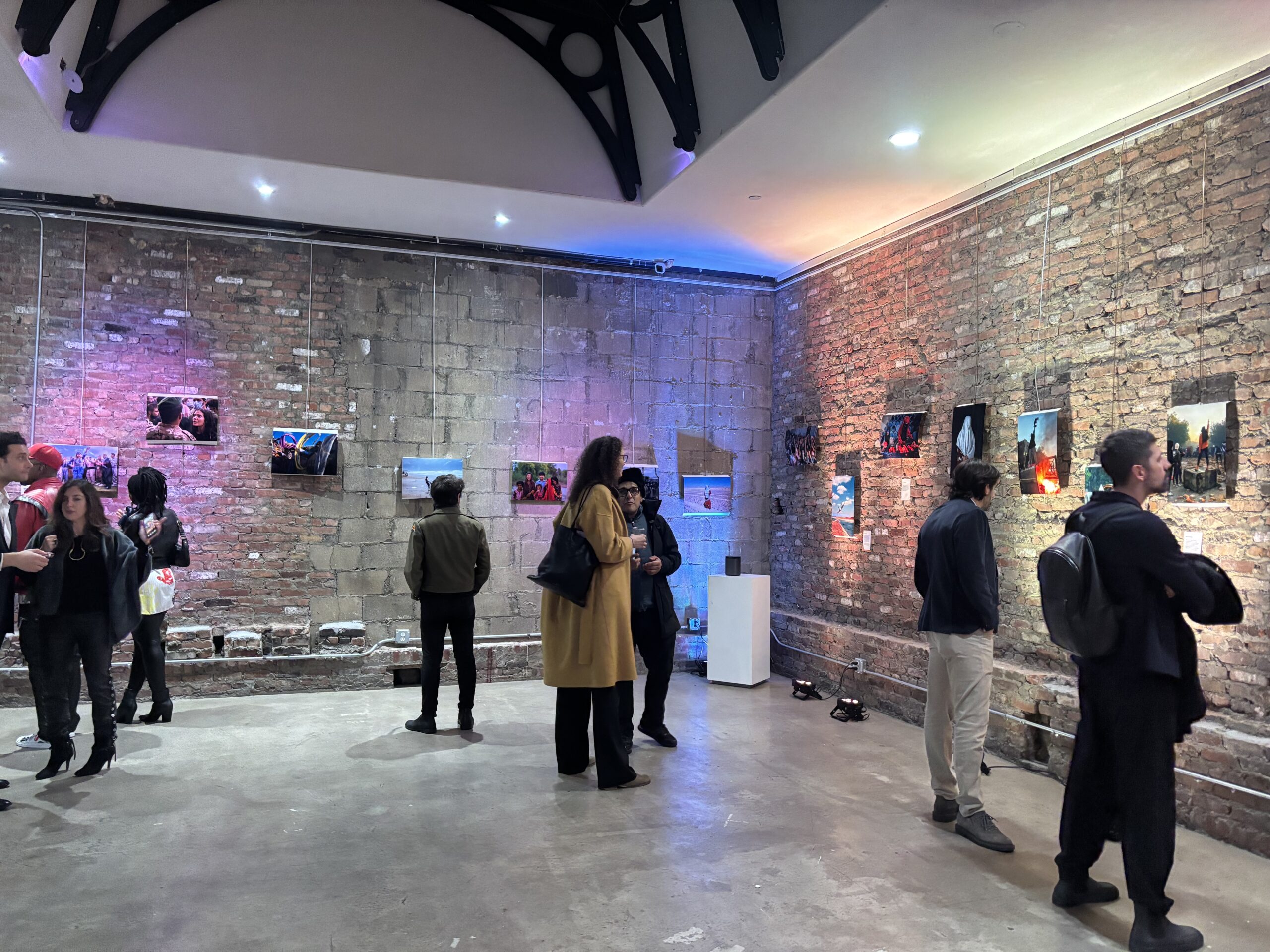
This immersive experience, curated by Farnaz Farrokhi, ‘artivist’ and educator, showcases the artistic visions of 55 renowned photographers from all corners of the globe: Pakistan, India, Haiti , Iran, France Syria, Iraq, Sudan, Ukraine, Russia, Indonesia, Afghanistan, United States, Mexico, Vietnam, Palestine, Egypt, Mali, … and many more. Given the arduous and painful nature of writing about anything fun or beautiful amid blatant genocide, alongside the frustrating meta-suppression of humanitarian catastrophes, this profound showcase supplies extraordinary solace and understanding–community. We are blessedly presented with artistic visions that inspire change, foster unity, and promote peace through the fractalized lenses of their insights and cameras alike.
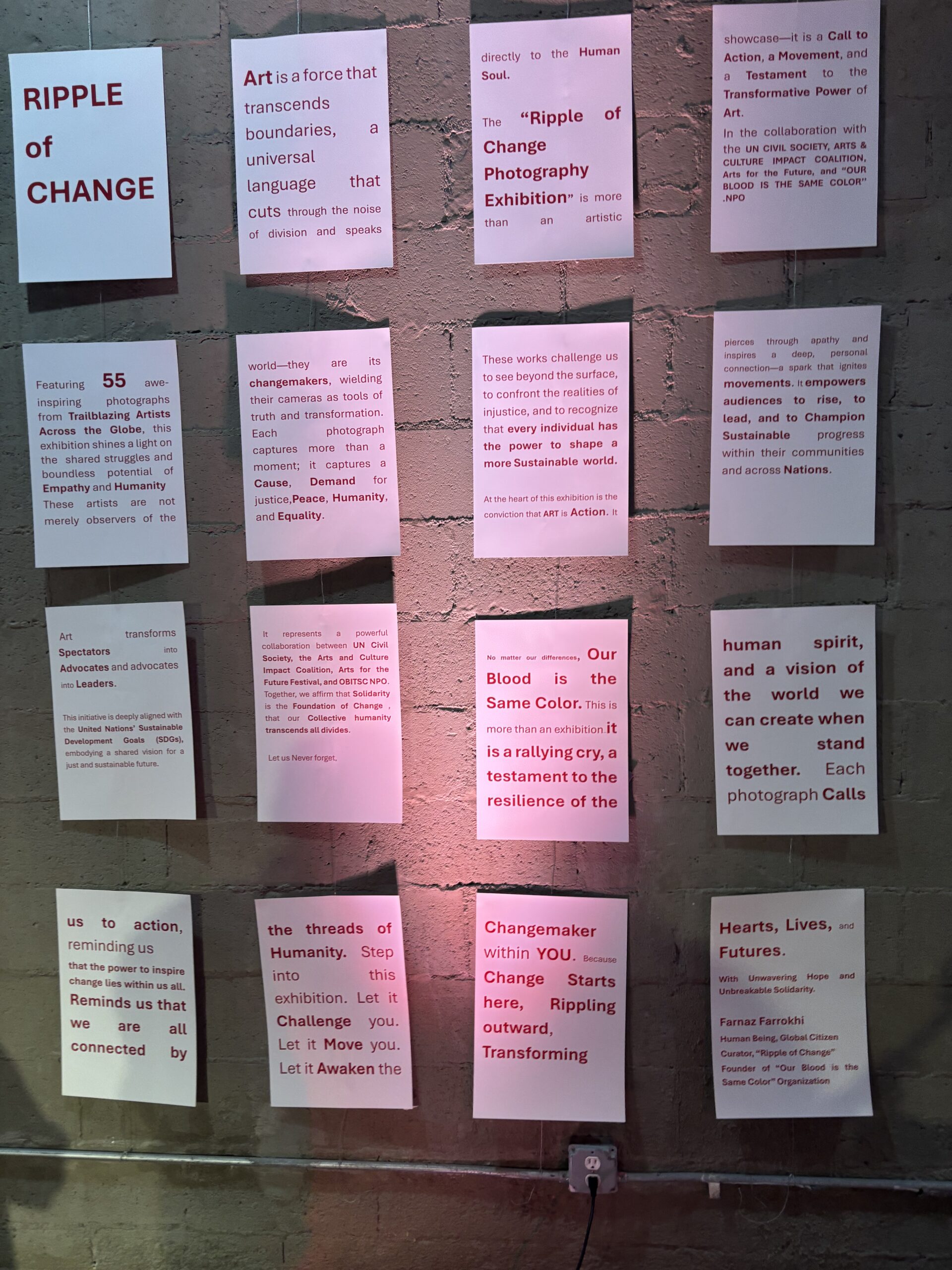
High profile individuals—including United Nations representatives, policymakers, activists, and “changemakers”—attended and administered powerful keynote speeches and musical, poetic, or film performances this exquisite evening. Among the distinguished speakers was Dr. Andrea Vessell, Founder and CEO of The Wawa Aba Leadership Institute and KOGIS – Keeping Our Girls In School. She made several shocking and thought-provoking about gender inequality: Women are making much less money, 70/100 of men, which certainly adds up.
“Gender inequality may seem like not a big deal, but it’s extremely unsustainable. Several factors impact it: Poverty, gender-based violence, access to education & economic participation, health inequities, & impact on climate change.”
First, the “disproportionate system of poverty”, she poignantly affirms, is caused by an “entrenched system of limited barriers” such as depreciated access to ‘financial resources & meaningful economic opportunities.’ Second, gender-based violence (GVM) represents women negatively affected by issues like ‘female genital mutilation (FGM), intimate partner violence, islamophobia & transphobia. The ‘your body my choice’ mantra has normalized gender-based violence, to the point that the female body is so inferior to the point that someone else can claim it.
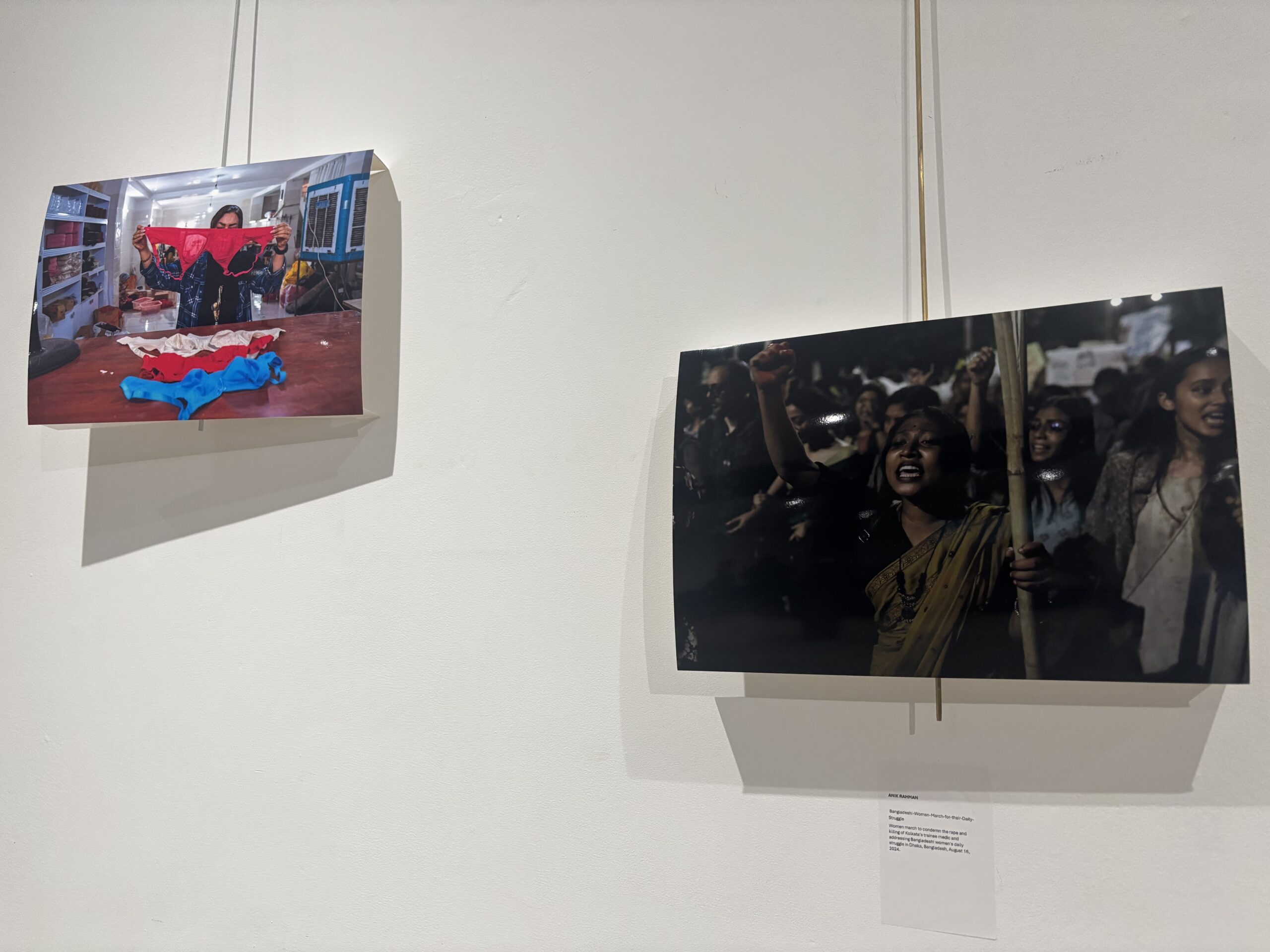
Third, is underrepresentation in leadership exacerbating gender inequality.
“Many times, I will walk into rooms & they will welcome me in. I’ll be the ONLY woman at the table. And yet they are discussing issues concerning women. How do u speak ab me without me?! How do u speak for my issues? How do men understand the complexity of womanhood? Please talk to me about menstruation. And the impact it has on our bodies and our psyches. Yet, those decisions are made all across the world without the voices of women. What would it be like if we made decisions about men without men?”
(Everyone in the audience snickers… and smiles).
“And yet it’s ridiculous because it wouldn’t happen, and yet it happens to women every day.”
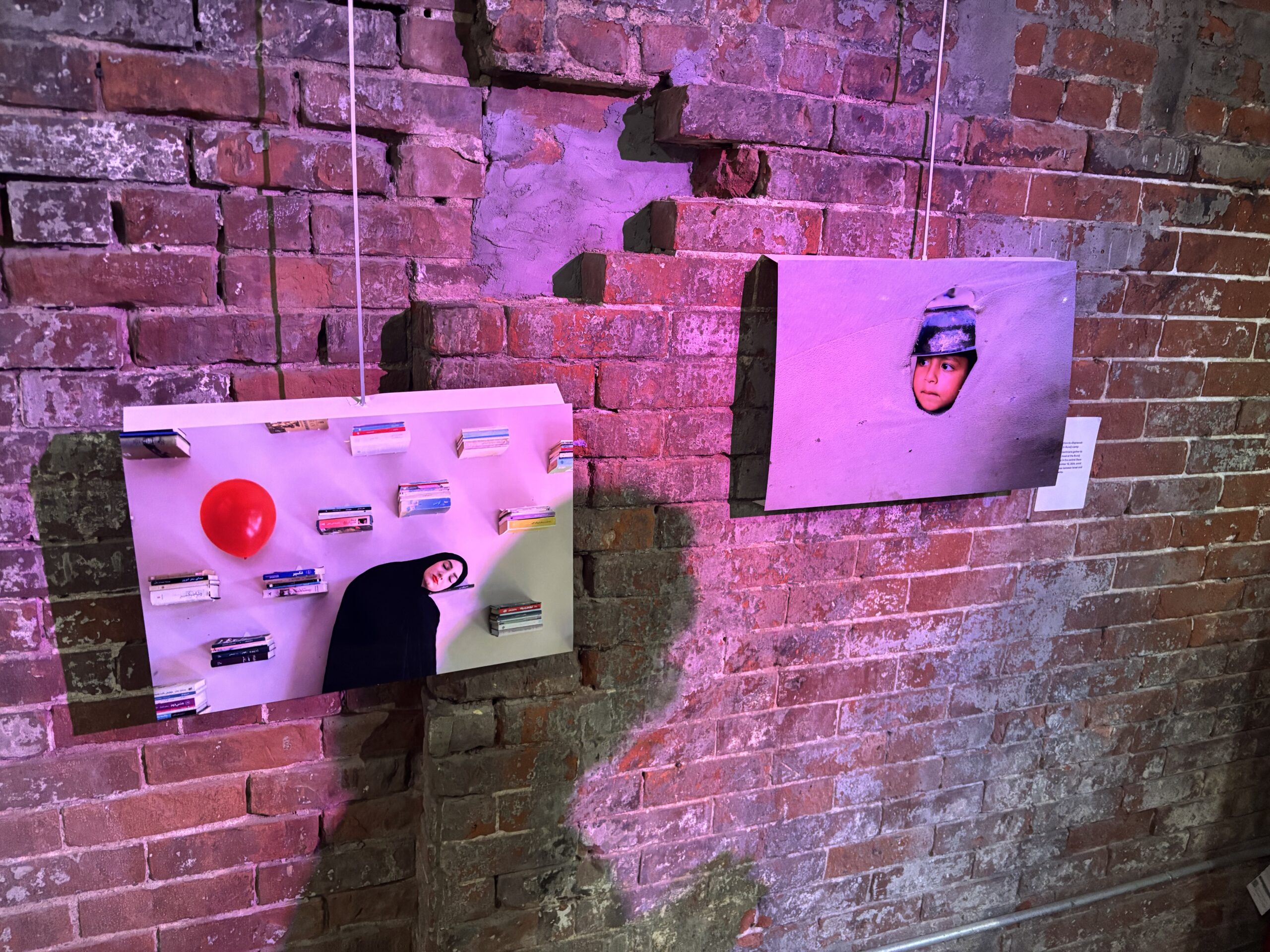
Proceeding to elaborate on the ‘health inequities’ factor dictating gender inequality, the professor asserts that achieving just-equality for women across the globe would save us ‘1 trillion dollars’, as per the United Nations. Members of the audience had interestingly guessed 1 billion tops, when asked to guess. Finally, climate change deeply impacts the lives of women because they ‘are the ones who do most of the labor across the world’ like animal husbandry, getting wood, and so forth…
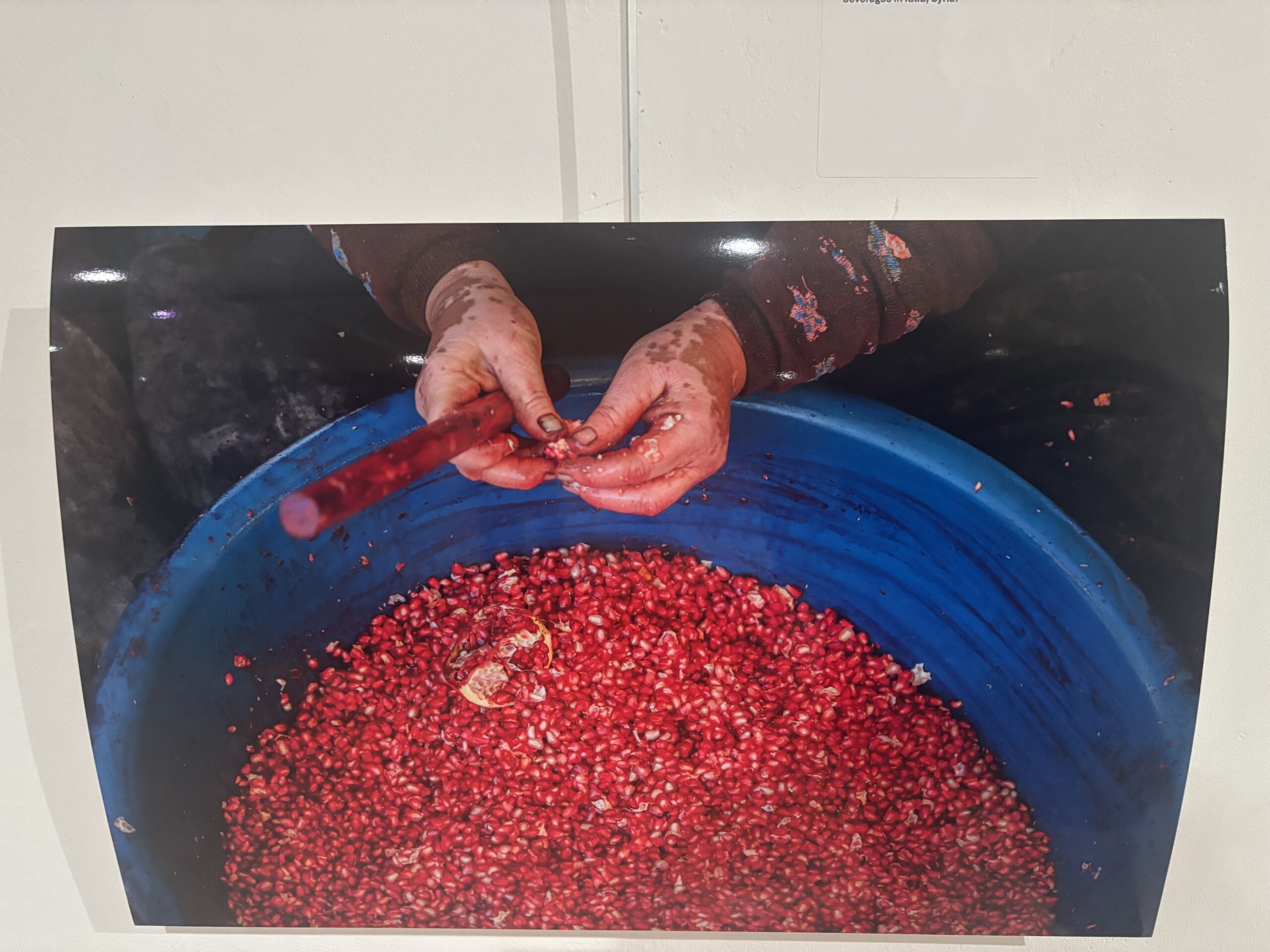
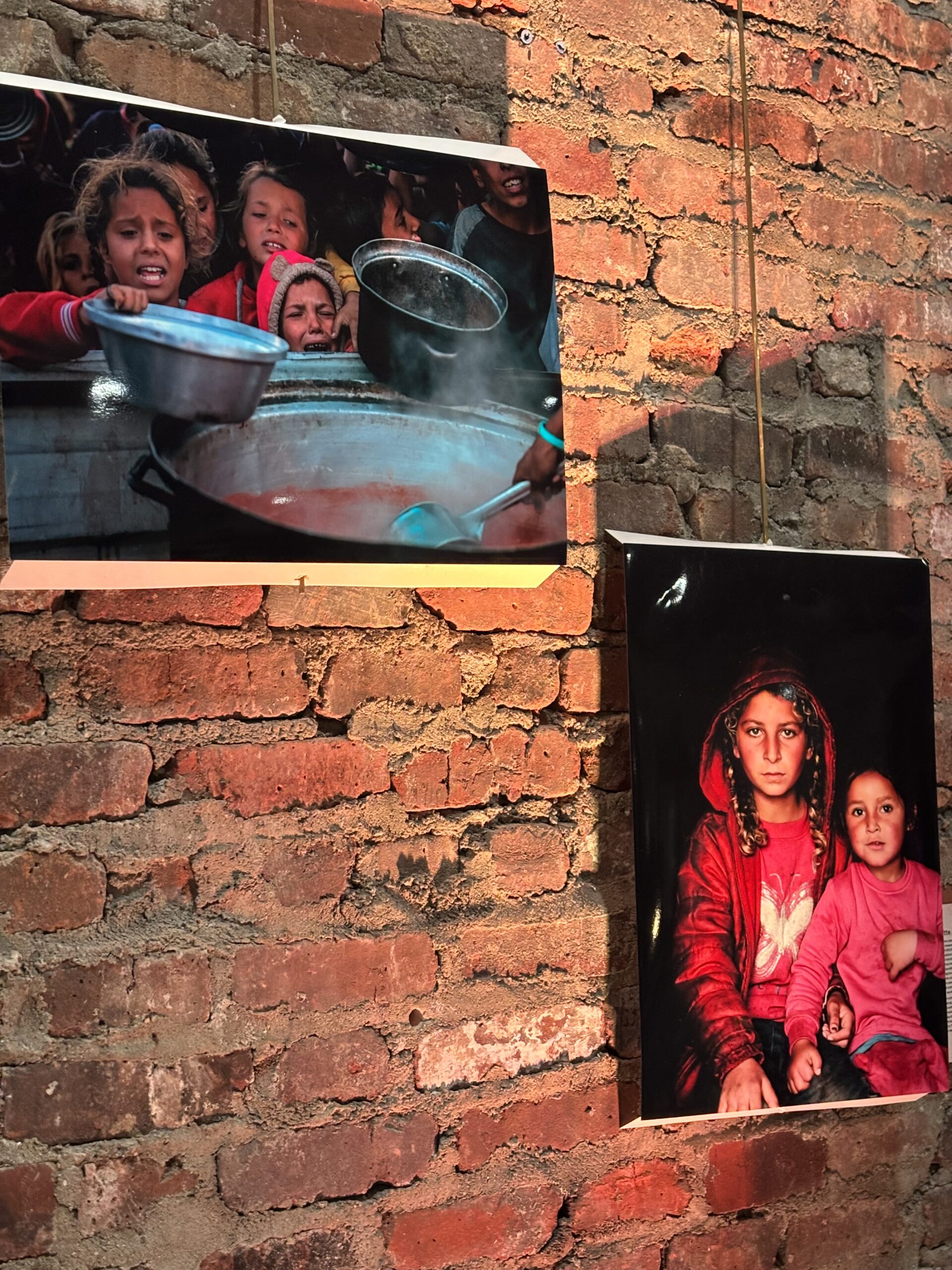
“Why is this important? Bec as we talk about our planet, we have normalized things that should not be normal. As we look around the room we see photos of Violence. Violence. Violence. And disparities. In every chaotic and crisis around the globe, it is the women and children who are more deeply impacted than anyone else. This is indeed a call to action, my friends. It is a call to say to you—as we go about our lives, and we see what is happening around our planet, it is in YOUR best interest, (even if you’re not female-bodied), to take care of the sea of the issues around YOU. Your children and grandchildren depend on it…”
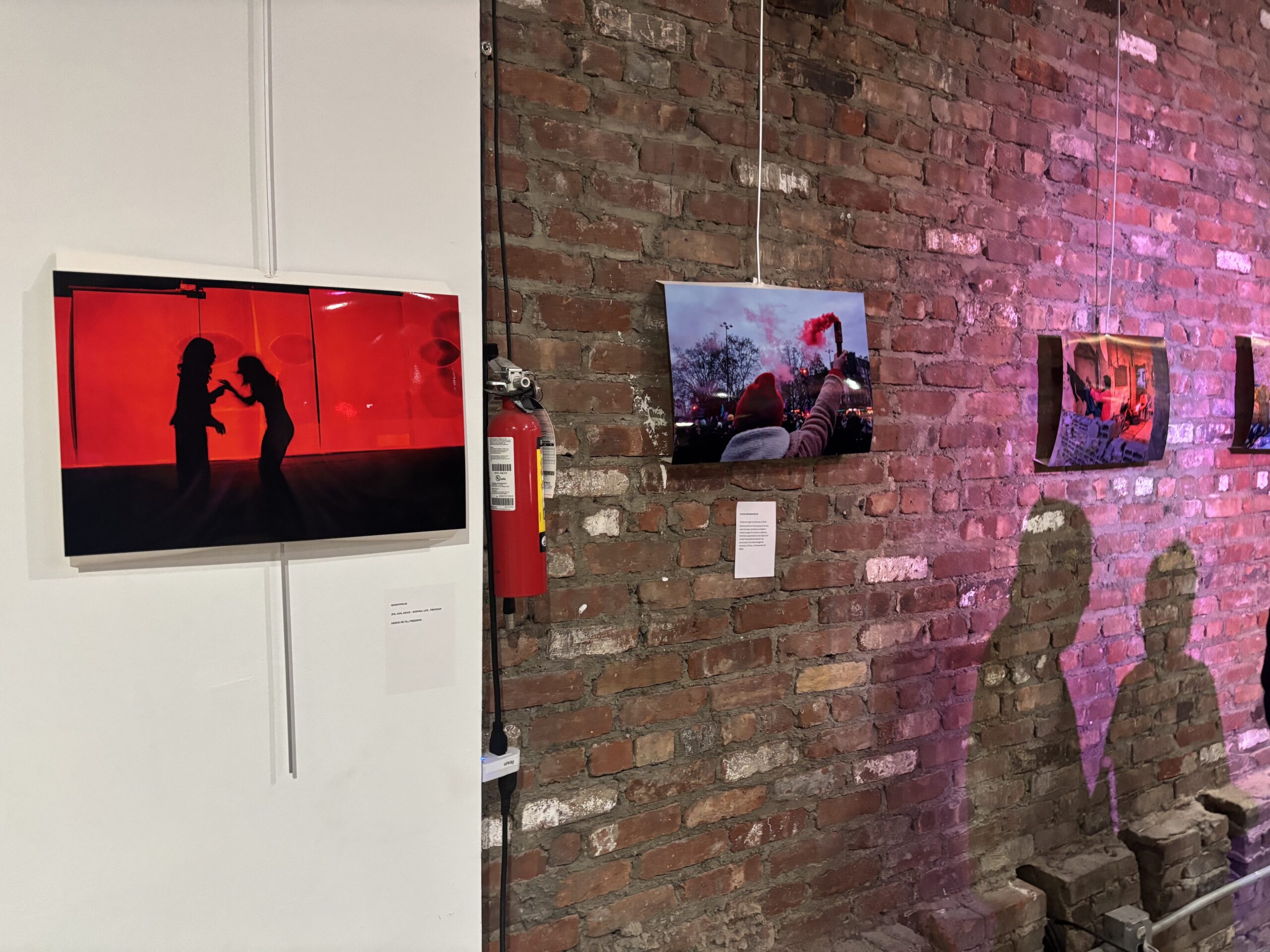
South Sudanese refugee Mary Maker, Goodwill Ambassador for UNHCR (United Nations High Commissioner for Refugees), also pressed on urgent issues at hand. She did so every poetically, viscerally recounting actual existence from within the refugee camp. Despite an impassioned accent, riddled with tears and fiery emotion impacting pronunciation, I managed to transcribe the following:
“I like speaking in poetry~They say ART TRANSCENDS BOUNDARIES. But why are we talking about 123,000,000 displaced refugees today? Those are numbers. No one ever think about WHO is in there. And we live in refugee camps, we breathe the same air for one month, for two month, for ten month, for two years, for 20 years… and here I am becoming a young adult in a refugee camp where no one sees me. Children turn advocates, not because they want to become advocates, but because the world has forgotten them…”
“The camp chains us down, and we forget to dream. Your mother is crying, your father becomes this fragile person you don’t even recognize. Fighting for food. Fighting for the very first thing that gives us the dignity to live. Are refugees human? Do we have a voice on the table, and what does that table ever look like? The walls are always trying to elicit empathy from our stories, and if told, what do those stories ever look like? Will we ever find hope? What is home? For us, it’s the boat that’s always chasing us, as we chase it back … yet the line is never safe. There are so many kids in boats, because people are never safe. No one ever sees us… and we watch from refugee camps… my biggest fear is to die an untold story…” Sings Mary… in a moving mix of her indigenous tongue marbling English.
Reminded of the recent best-selling Novel Martyr! by Kaveh Akbar, I do recognize of late the need for legacy. Gazans turning journalists or medics—knowing their death magnifies imminently by their chosen vocations. Nevertheless, I’m awakened to the ego-reality of such a need. There’s a moment in the novel where Cyrus, the newly sober, orphaned son of Iranian immigrants, takes note of the word ‘Sonder’, which denotes ‘the realization that each random passerby is living a life as vivid and complex as your own’. This exquisitely aligns with the concept of the fractal, as his inherent fascination with Iranian mirrors made into mosaics comes to symbolize ‘western vanity arriving in shards to Iran’.
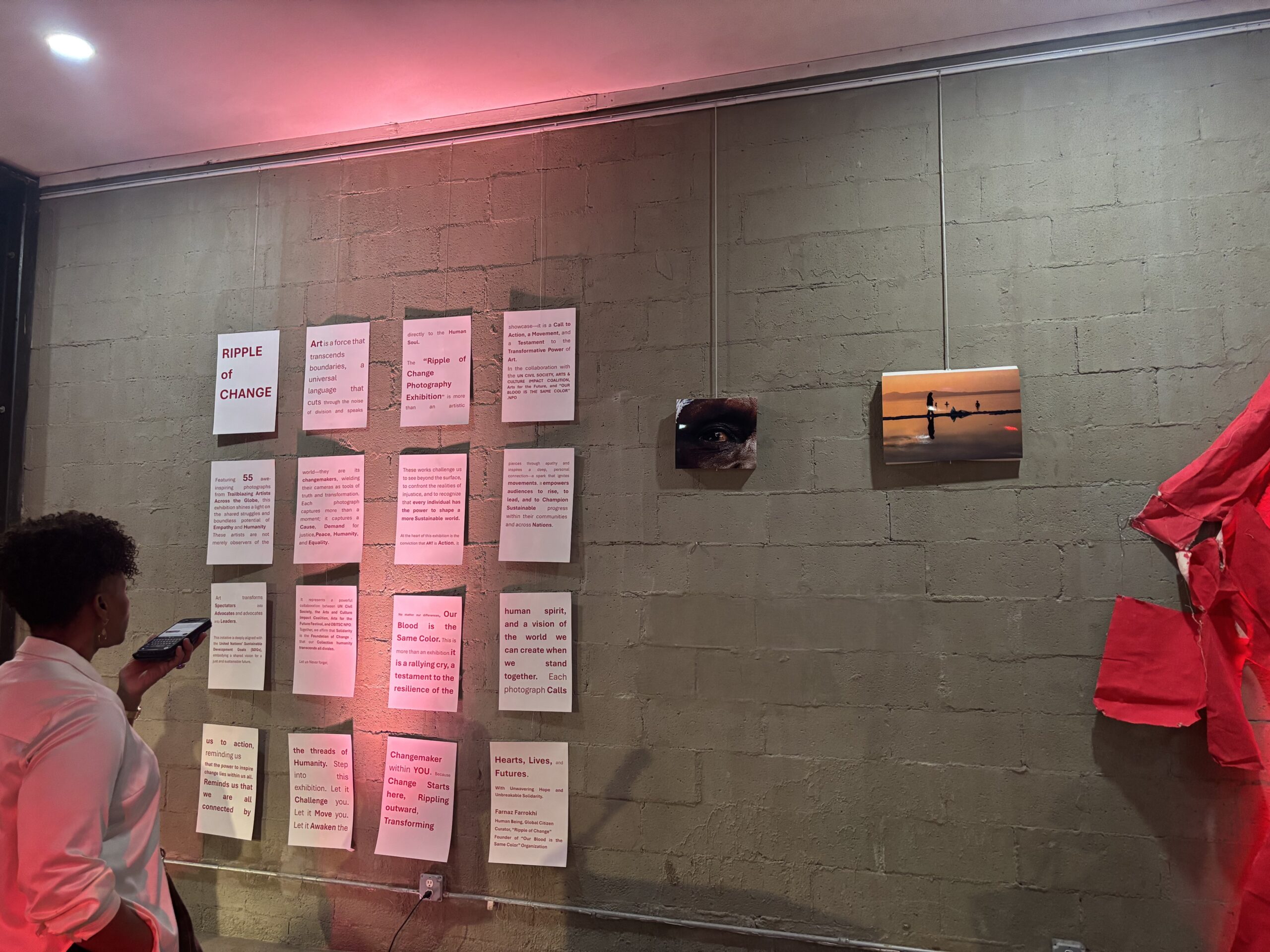
Moreover, Afghan Women’s Rights Activist- Mina Bakhshi- expounded eloquently on the increasing suicide rate among women in Afghanistan. Asking us to stand in solidarity, on behalf of women fighting for their lives, her plea was ever so clear amid whimpers and evident firsthand trauma.
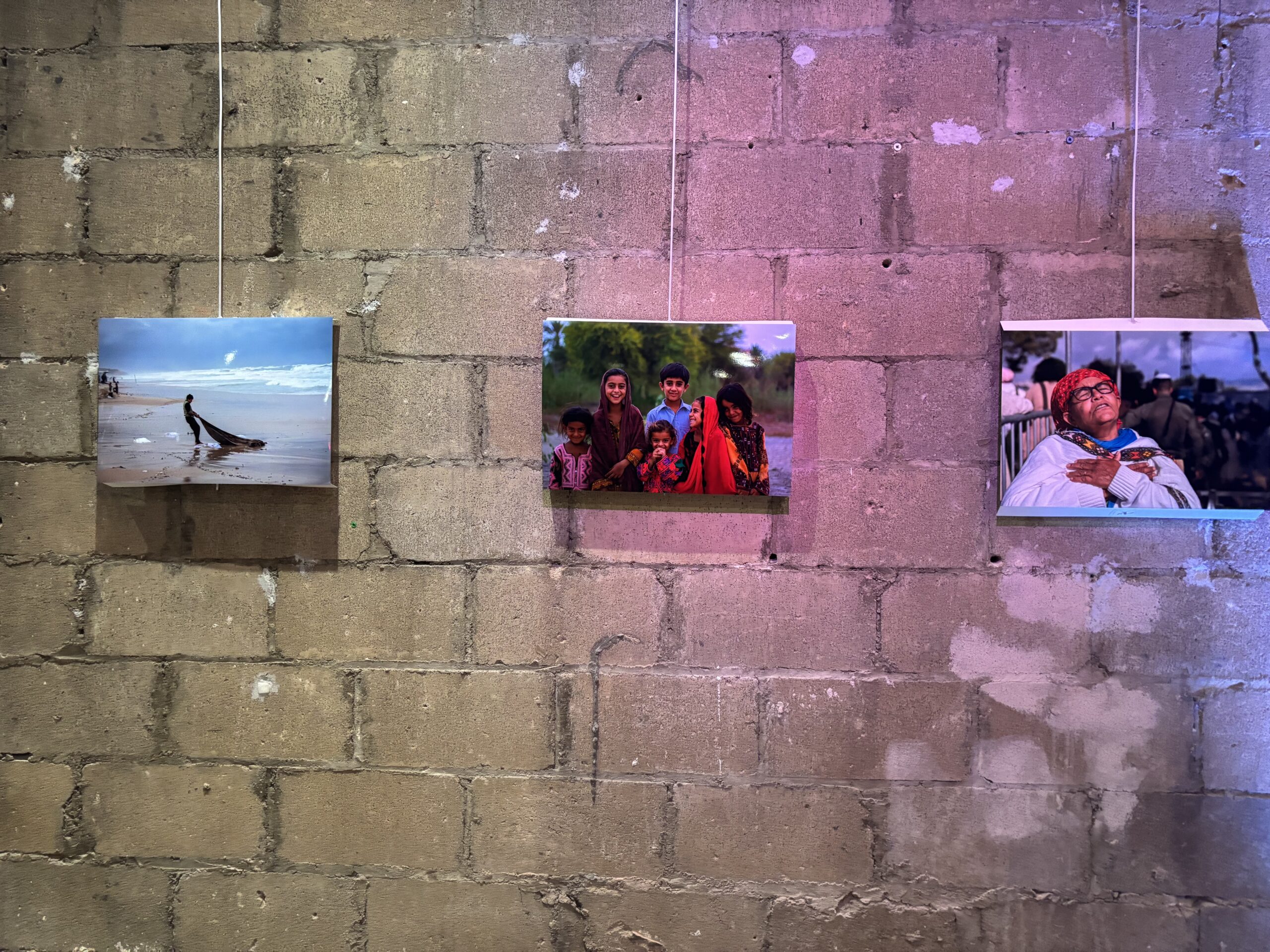
Music Georgian Operatic Singer by Gocha Abuladze ensued, preceded by a film screening of “Zero Sum Game,” directed by the award-winning filmmaker Amir Farrokhi. They left us meticulously enveloped in meaningful yet painful content and reminders to Act. To Use our Voices to elevate those without representation, food, or freedom. How else will change galvanize the world for the better? We must acquire knowledge and understanding, by listening to stories and open our eyes to dimensions well beyond our immediate scope. Hence, Art acts as a telescope—peering in kaleidoscopically at truths. Bearing what we can, when we can, we must find ways to channel the Grief+ I know we are all feeling especially hard this past year+. Connecting with community is foundational; only then may we feel accountable and supported to Act and challenge the status quo on issues that really matter.
